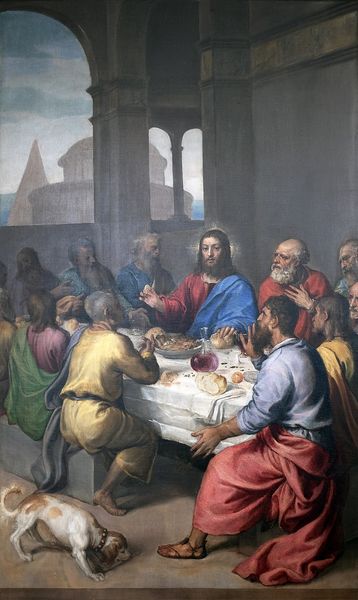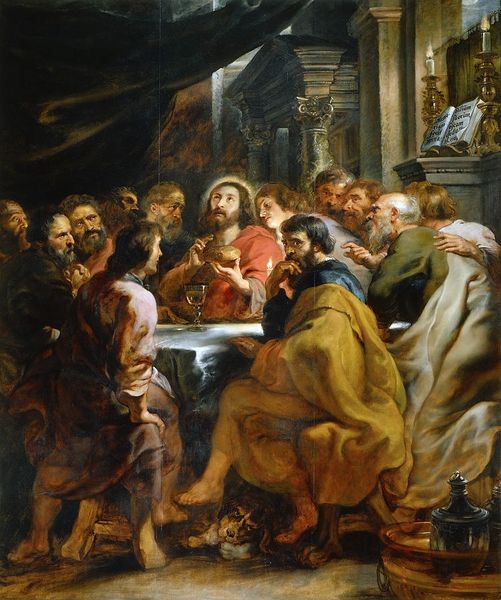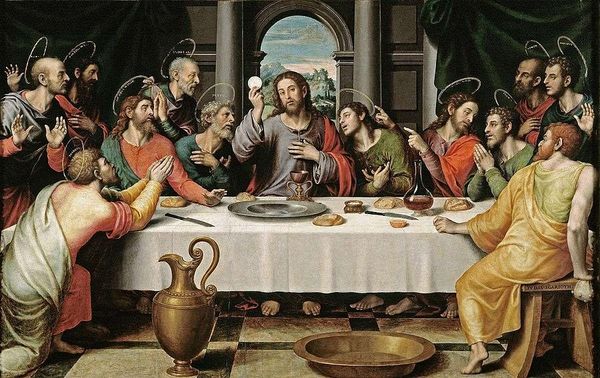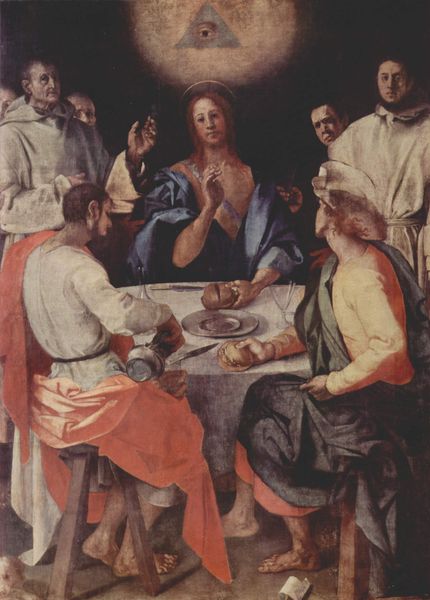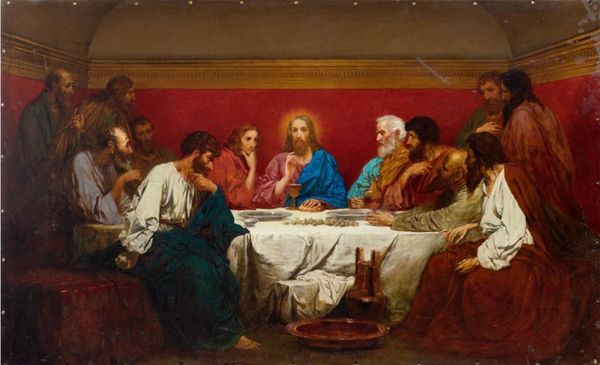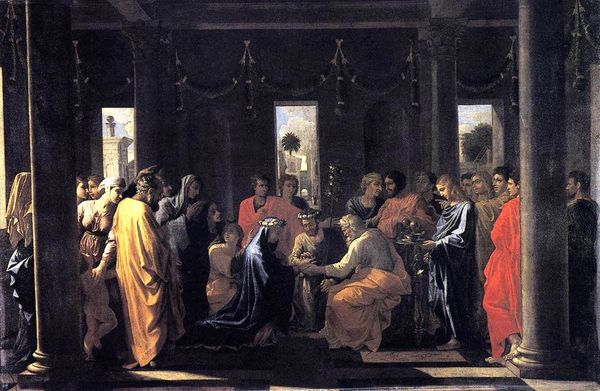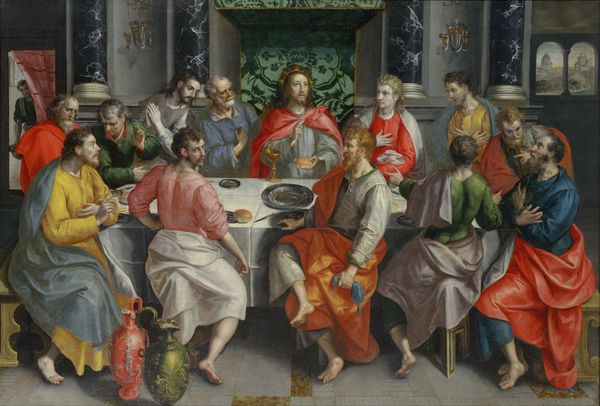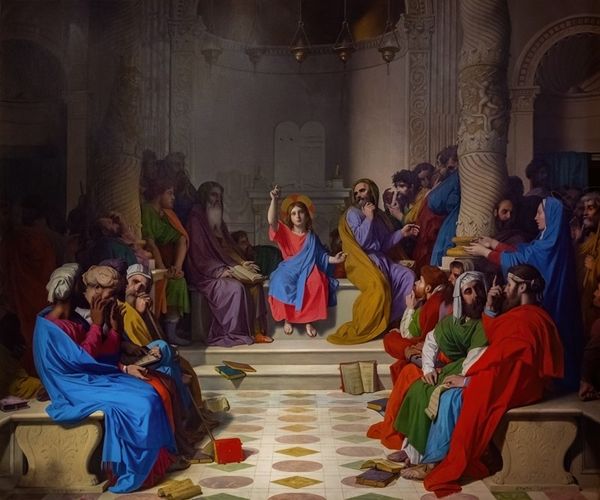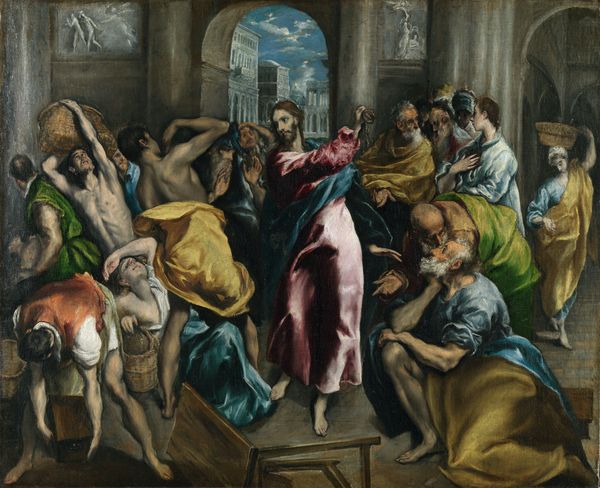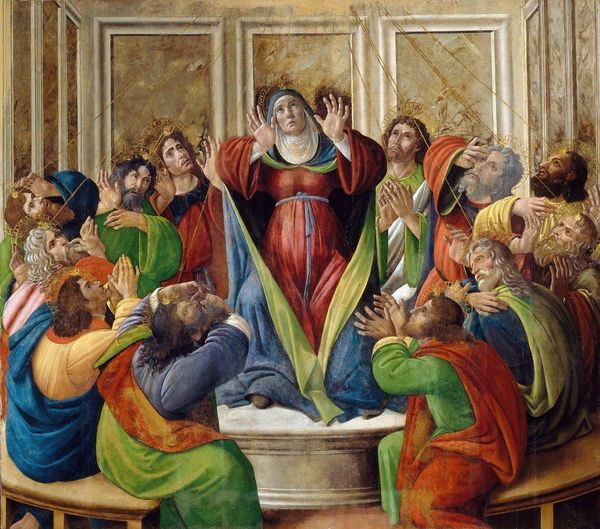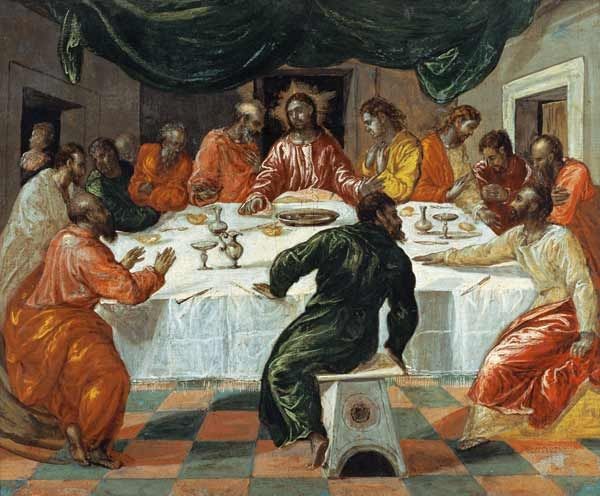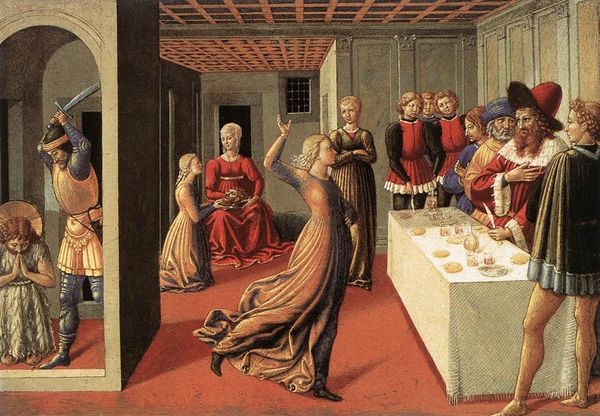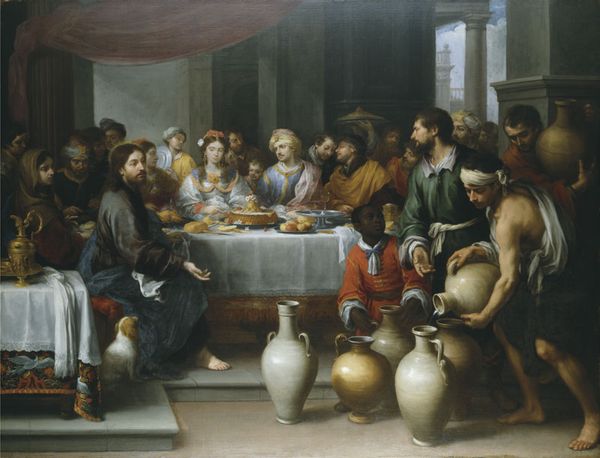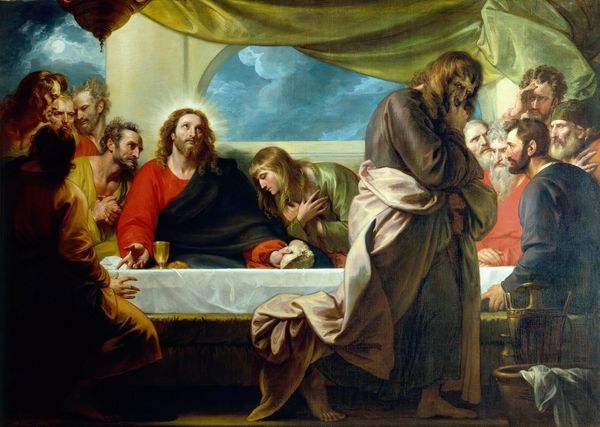
painting, oil-paint
#
portrait
#
painting
#
oil-paint
#
mannerism
#
figuration
#
oil painting
#
genre-painting
#
history-painting
#
italian-renaissance
Copyright: Public Domain: Artvee
El Greco, or Domenikos Theotokopoulos, painted “The Feast in the House of Simon,” during a time when religious and cultural identities were being contested across Europe. Here, the setting transports us to what appears to be 16th-century Venice, rather than ancient Judea, reflecting the artist's own journey from Crete to Italy and then Spain. This deliberate anachronism invites a reflection on how religious stories are constantly reinterpreted through the lens of contemporary culture. The narrative, drawn from the Gospel of Luke, traditionally centers Simon's questioning of Jesus, yet El Greco subtly shifts the focus to the emotional undercurrents of the scene. Who is the woman wiping Jesus' feet, and what does it mean that she, often depicted as a prostitute, is central to this depiction? What tensions of class and gender are present in the room? The figures are elongated, almost spectral, capturing a sense of spiritual intensity and internal conflict. In a period marked by the rise of the Spanish Inquisition and religious reformations, this painting becomes more than just a biblical scene, it's a stage for exploring themes of forgiveness, social judgement, and spiritual reckoning.
Comments
No comments
Be the first to comment and join the conversation on the ultimate creative platform.
